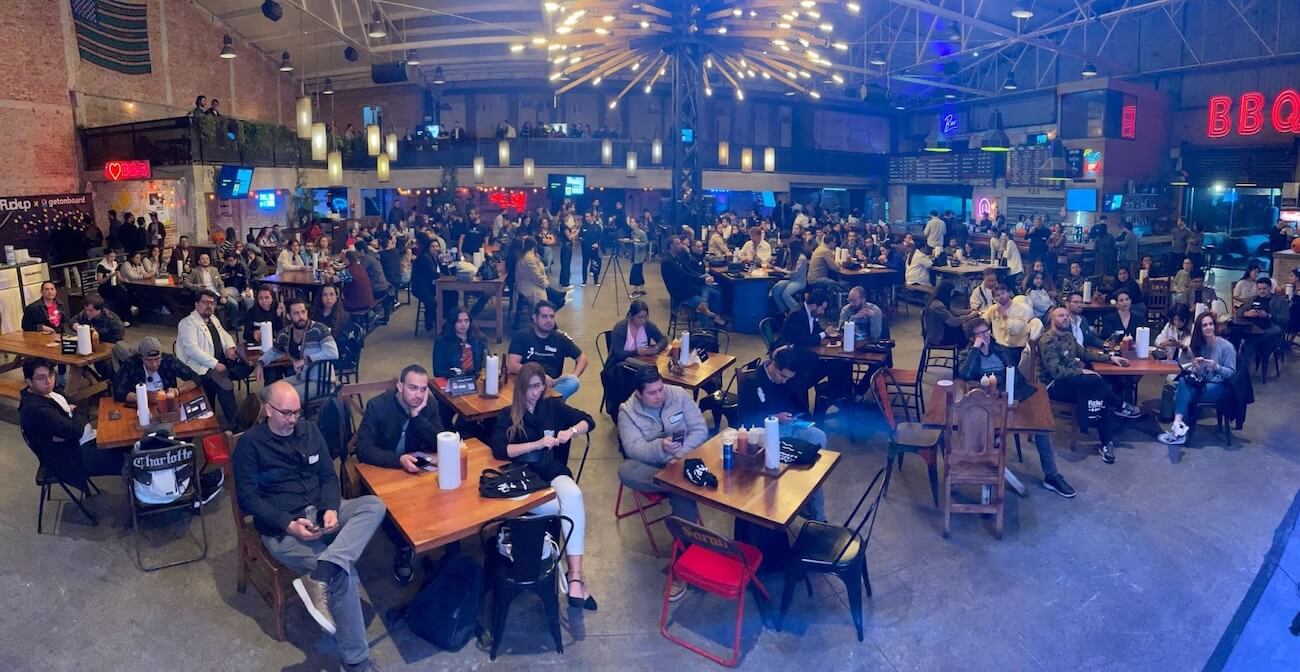Explore key techniques and personal tips for being a successful public speaker, from our experience running events around the world.


I am often asked how I became a public speaker. The reality is that I started public speaking out of necessity, not for fun. At first, I had the paradigm of the public speaker as a guru, which caused me embarrassment. However, after years of reactive experience on stage, I discovered that I really enjoyed sharing my knowledge and experiences.
Public speaking is a skill, not an attribute. People think it is something that comes naturally to others.
But it is almost always something unnatural that has been developed as a practice.
In fact, it is often something we start to improve out of necessity because we are so bad at it initially.
No one is born an expert in anything.
During the sessions of Fuckup Nights, I developed valuable insights that transformed the way I see the stage, turning me into a passionate public speaker. The positive feedback from the audience was crucial in strengthening my confidence and believing in the value of my message.

I noticed that when I was on stage I entered a state of flow, which allowed me to focus more on that feeling and develop the ability to add significant value from the stage as a public seaker. This revelation was a turning point that helped me to improve and receive invitations to conferences around the world.
The goal of a speaker should not be to simply "be a speaker". It is essential to dedicate yourself to something that you deeply believe in and that can benefit others, and then to share it with passion and conviction.
Just because you're super-skilled, you can't talk about anything. You have to dedicate your life to something that you deeply believe helps others. And then share it.
In each lecture I focus on leaving 1 to 3 applicable insights to change people's lives. If one of those helps one person in the audience, I accomplished my goal.
I always prioritize adding value to my audience over satisfying my clients. If these two goals conflict, I prefer to decline the invitation. This approach has been fundamental in maintaining the authenticity and relevance of my presentations as a public speaker.
I don't focus on what they will think of me. Not on my posture, not on my looks, not on the use of my hands, not on my place on stage, none of that. Instead... 👇
I have developed a unique style of presentation, similar to an informal conversation with friends in a bar. This approach allows me to remain authentic and genuinely connect with my audience, thus avoiding message destruction due to lack of authenticity.
I use personal and relevant stories to develop each key point of my talks. This not only makes it easy to create valuable outlines without the need to memorize lengthy content, but also allows me to adjust the length and impact of the presentation according to the needs of the event.
It's a little hard for us to accept, but a lot of our success is due to luck. Creating a worldwide movement to free ourselves from a taboo such as failurewhich grew exponentially, gave me a good push to recognize that I am a communicator. In addition to having worldwide scenarios that would allow me to put my skills into practice, not only in public public stagesbut also in corporate.
The spaces created at Fuckup Nights have allowed me to develop and gain in-depth knowledge of this aspect of myself and my ability to share lessons learned, experiences, and failures that I initially thought I was completely unaware of, and to build on them to create a platform for personal and professional growth.

In short, being a successful public speaker requires having something valuable to say and the ability to help improve the lives of others. Recognizing the influence of chance on our success and the ability to organically engage and retain customers through quality content are elements that also contribute significantly to success in this career.
If I had to sum it up: Have something very valuable to say and help your friends in the audience improve their lives.
Something that has changed my vision as a speaker and what I want to transmit in every minute that I have the opportunity to share my teachings with a group of people is to live in the present, recognize how wonderful it is and stop focusing on a future that I cannot control:
When we are in front of an audience, but we have millions of insecurities and our focus is not adequate, we tend not to deliver the greatest possible value to our audience. If we focus on living in the present and valuing every second of the day, focusing on always generating the greatest possible value, we will be able to transmit and communicate effectively with our audiences.

Edited by
Karla Ferreira
Let's transform our perception of failure and use it as a catalyst for growth.